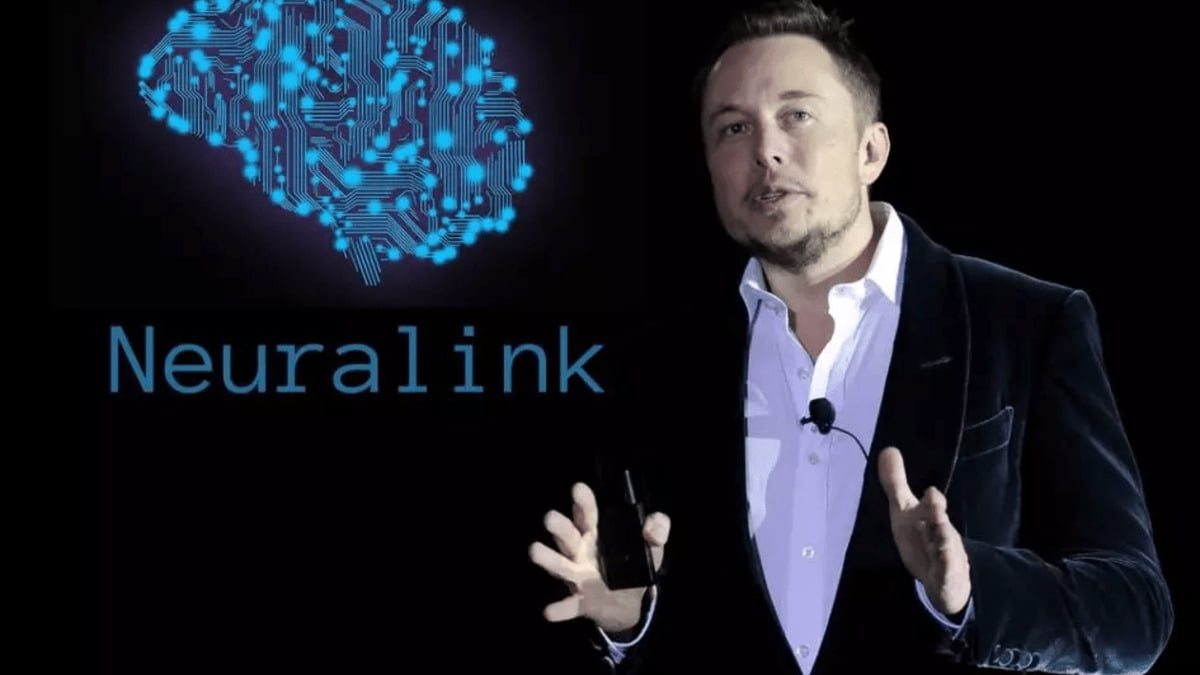Many experts believe that even at the early stage of True AI, humans will be left behind at some specific task from AI. And I personally believe that AI will surpass us at some point, which is a threat to humanity.
Neuralink is Elon Musk‘s answer to the threat artificial intelligence poses to the human race. In many ways, we are like cyborgs anyway because our smartphone is like an extension of us, like a limb. The problem is the communication bandwidth to the phone is too slow.
It’s a speed issue. We are getting the information to our brains too slowly and not sending it out fast enough. You need something artificial in your brain to help with this process. Neuralink connects human brains to computers through a chip smaller than a penny. You insert it by drilling a small hole in the skull. Although, this could be as simple as a LASIK procedure in the future.
Anyway, A robot implants the device to ensure extreme precision. The chip is connected to the brain through 1,000 tiny wires that are ten times thinner than a human hair. The company says these wires are flexible enough not to damage brain tissue. This is key because other BMIs such as deep brain stimulation which is used to treat Parkinson’s insert much larger wires which carry more risks such as strokes.
So How Does The Neuralink Device Work, How Does It Enhance Your Brain?
Your brain is made up of neurons. 100 billion neurons. The neurons come together to form a large network through synapses. At these connection points, neurons talk to each other using chemical signals called neurotransmitters.
Everything you see, hear, taste, smell, feel – these are just neurons firing or what’s called an action potential. This is where the Neuralink chip comes in. The wires on the chip carry electrodes. The electrodes record the signals produced by the action potential and send them to an external device worn behind the ear.
An App controls the device so the electrodes basically read what is happening in the brain and repair the broken circuits. The electrodes stimulate as many neurons as possible in orders of magnitude greater than what’s ever been done before to increase the capabilities of our brain.
This will be life-changing for people with brain disorders. Neuralink says it will help people who are paralyzed to move and allow those who are blind to see, treat Alzheimer’s, cure epilepsy.
When Elon appeared on a podcast, he said “Neuralink could in principle fix anything that is wrong with the brain and that the device could be implanted into someone as part of a trial within a year. It’s already been tested on monkeys. A monkey has been able to control the computer with his brain.”
Neuralink is building on the shoulders of other implant technologies. Matthew Nagle, who was paralyzed after being stabbed in the neck, was the first person to use a brain-machine interface in 2006 that allowed him to control a computer cursor. Even though Neuralink is focused on treating brain injuries, for now, that is just the starting point for the company.
There will be updated versions of Neuralink. Kind of like a software update for your computer where the latest version could be capable of so much more.
So What Are Some Things You Could Do With A Neuralink Device In The Future?
Elon says humans will be able to recall everything like a movie and play it back. We will have superhuman memory. If you travel to a foreign country you will be able to download a program and speak in their language. In fact, you would not need to speak at all. You could communicate with people without speaking if you both have an implant like telepathic communication.
Neuralink is just one of many companies thinking about brain-machine interfaces. Facebook is funding research on BMIs that will allow you to type with just your mind. Google’s parent company Alphabet has a research organization that wants to treat diseases with an implantable device. The ultimate goal of Neuuralink is to achieve a symbiosis with artificial intelligence.
But merging with AI comes with dangers. When your computer gets hacked, that’s a problem. When it comes to your brain, that’s a bigger issue. Scientists have been urging governments to address what data should be collected, how data will be kept safe, how citizens can opt-out of having their data shared as a default.
But all the problems aside it has the potential to change your lives and I don’t say that lightly. It can change our lives in the way the internet has connected the world, in the way aeroplanes have allowed us to travel, in the way medicines have cured disease.
We may be looking at our world now and thinking that we are lucky to live in this day and age and that two decades ago, they couldn’t have imagined what would be possible. Yet two decades from now, people will look at us and think about how far behind we were.
